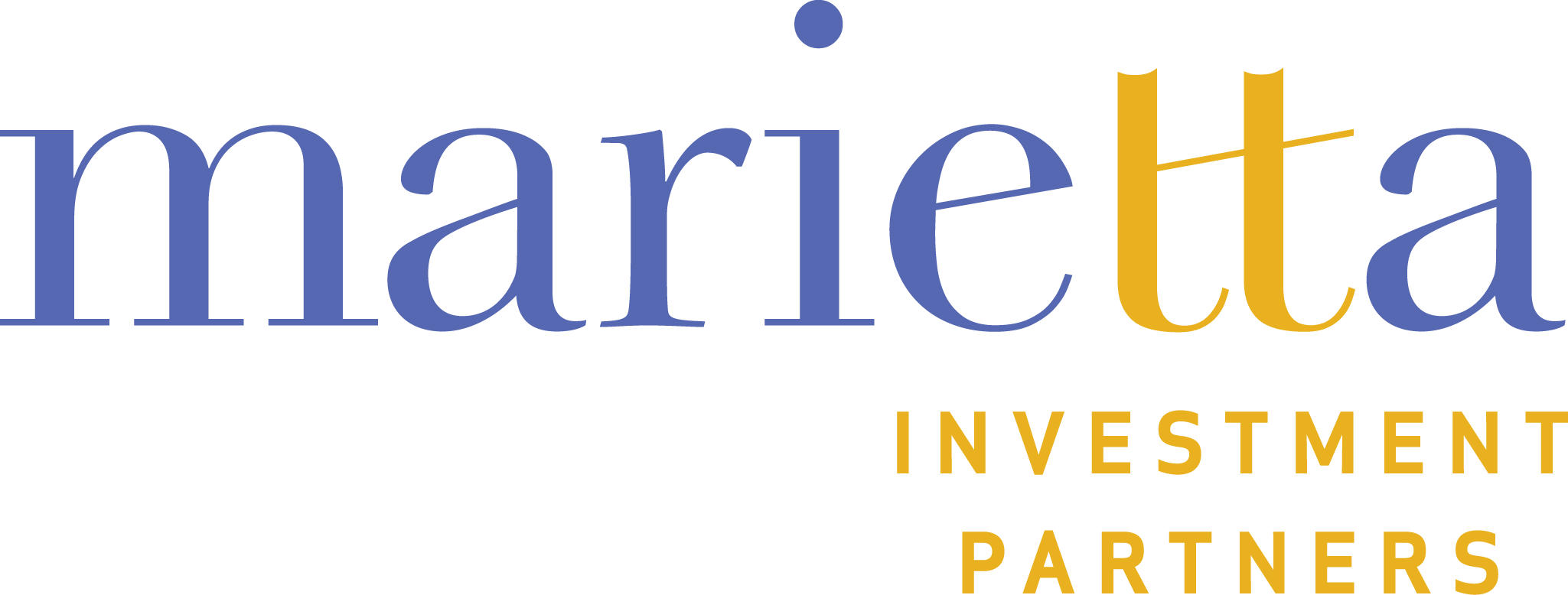Summary
The global economy is approaching the end of a four-year period when financial markets were driven by concerns about the COVID pandemic, inflation, central bank policies, a spike in interest rates, and the omnipresent threat of a recession. We think these issues are largely behind us. In the final phase of this period, which will extend through the first half of 2024, a further decline in inflation will enable key central banks to reduce restrictive policies. In the second half of 2024, we expect the emergence of a new period of relatively stable economic growth and rising corporate profits that will create propitious conditions for global equities.
Soft Landing in Sight
The U.S. is poised to lead in this transition. In recent Outlooks we maintained the forecast of an economic soft-landing in which inflation would steadily recede and the economy would avoid recession. In 2023 we were correct: GDP rose 4.9% in the third quarter, and a preliminary estimate for the fourth quarter is 2.3% growth. Resilient consumer confidence and spending supported by a strong labor market should continue into 2024. A decline in core inflation to approximately 2.5% and two 25 bps cuts in short-term rates by summer will also help GDP remain positive. The second half of the year holds even more promise for steady growth and lower, less volatile rates. Overall, we now estimate 2024 GDP growth will be 2.0% and inflation will near the 2.0% target of the Federal Reserve, allowing the Fed to further reduce rates in the second half. We expect to no longer see an inverted yield curve by year-end.
Is This the Beginning of a New Bull Market?
The US stock market has considerable momentum entering 2024 and the outlook remains bright. In November and December, optimism spread that lower inflation and interest rates along with higher GDP and earnings lay down the road, and the result was double-digit rallies in the major US market benchmarks. The question now is whether stocks are overvalued and vulnerable to another large setback, or whether the current rally is the beginning of more gains and possibly a multi-year bull market. The answer will depend on the strength of corporate profits. Earnings for the S&P 500 Index grew 4.9% in the 3rd quarter of 2023 and the consensus forecast for the 4th quarter is 2.4%. We think the recovering economy in 2024 will be strong enough for earnings to rise 10-12%. The market in our view is fully valued but not overvalued, and thus will rise at the same pace as earnings. This will be welcome news for stock investors who have experienced extraordinary volatility over the past 4 years: two declines of at least 25% separated by a dizzying rally that doubled many equity benchmarks. We think their patience for reduced volatility is about to be rewarded.
A Global Rebound
Major international economies, with the notable exception of China, will likely experience the same positive developments occurring in the US. Moderation of inflation will enable acceleration of GDP growth ex-China, though the Eurozone will be mired in a soft patch for much of the year before picking up going into 2025. We maintain a cautious view towards China. Stimulus was less than expected and insufficient to boost their economy. The OECD forecasts China’s GDP growth to slow to 4.7% in 2024, down from 5.2% in 2023. We questioned in our last Outlook whether China has the determination to take the necessary steps to restore growth. So far the answer appears to be that they do not. Overall, we are encouraged that global growth appears to be making a favorable turn but we note that international economies comparatively are not as well positioned as the US. Therefore, investors looking for international exposure should continue to focus on companies that are experiencing positive secular trends. There is still potential for attractive returns in these markets with an average multiple of 12.8x forward earnings for companies in the ACWI ex-US index.
There Are Still Reasons for Caution
Despite the many positives for equity markets, we must still caution against complacency. The greatest threats are less likely to come from any of the problems of the past 4 years (pandemic, inflation, interest rates, etc.), but rather from new issues emerging. Foremost, we are sensitive to the potential for international conflict to disrupt trade and supply chains. We are closely monitoring Ukraine, Israel and the broader Middle East, and Taiwan. Global business seems to be navigating these situations successfully so far but escalation, particularly in the Middle East and Taiwan, would have a major negative impact on the global economy as those areas contain the world’s most important shipping routes. Second, commercial real estate is still struggling with the post-covid trend of remote work and lower demand for office space. While we believe that this will be a drag on the real estate and finance sectors of the market we do not see this spilling over into a crisis for the whole economy. Nevertheless, there are many unknowns about the exposure to assets that will inevitably see their values decline. This warrants close monitoring as well.
Excitement Over Higher Yields May Be Short-lived
The stock market rally of last November and December coincided with a sharp decline in bond yields. The table below shows peak US Treasury yields (occurring in October) and the subsequent drop.
| Bond Term | Dec. 31 2022 | 2023 Peak | Dec. 29, 2023 |
| 90 Day T-Bills | 4.41% | 5.50% | 5.35% |
| 2-Year T Notes | 4.42 % | 5.26% | 4.45% |
| 5-Year T Notes | 4.00% | 4.96% | 3.85% |
| 10-Yr T Notes | 3.88% | 4.99% | 3.88% |
The yield on the benchmark 10-year T Note, for example, fell from 4.99% to 3.88%. In the near term, we forecast additional declines across the yield curve, with the largest declines occurring in the shortest maturities. We expect this will finally bring to an end the inverted yield curve, which has generated much of the recession speculation in recent years. With this outlook, fixed-income investors may wish to lock in these yields to protect against future drops in rates. In our view though, we think a stronger and more stable economy will eventually lead to a rise in longer-term yields. We are not yet ready to advise increasing longer duration holdings and as always we recommend staying with high-quality issues. Lastly, we note that if inflation does fall to the Fed’s 2% target, the days of money-market funds and Treasury bills yielding over 5% will be over. When this occurs, trillions of dollars will seek alternative investments, including stocks.

